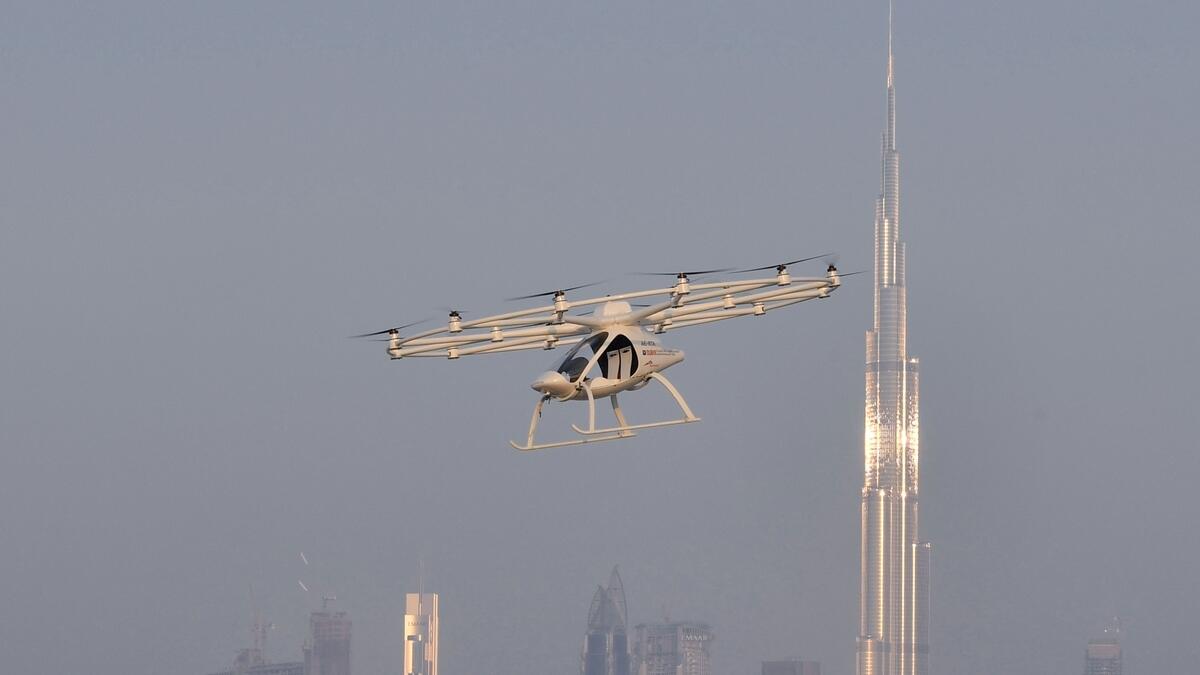The highly-anticipated flying taxis are set to debut in Dubai as early as the last quarter of 2025, with an aerial ridesharing service combining conventional ridesharing and flight services. Tyler Trerotola, the general manager of California-based air-taxi company Joby Aviation, announced this during the Intelligent Transport Systems World Congress and Exhibition in Dubai. Joby Aviation has advanced the launch of its electric air taxi from 2026 to the end of 2025, with an agreement with Uber to transport customers from their point of origin to any of the four vertiports in Dubai, and then to their final destination.
Initially, four vertiports will be constructed by Skyports Infrastructure in locations such as Dubai International Airport, Palm Jumeirah, Dubai Downtown, and Dubai Marina. The journey from Dubai International Airport to Palm Jumeirah is expected to only take 10 minutes by air taxi compared to 45 minutes by car. Booking an air taxi will be made through a mobile app, with Uber serving as the first and last-mile solution. Joby Aviation has applied to become the first certified air taxi operator in Dubai and has signed agreements with various authorities to launch air taxi services in the city.
Pricing for the flying taxis has not been revealed yet and will be dependent on market demand. The eVTOL air taxi can carry up to five passengers, including the pilot, and has a flying range of up to 160km at 320km per hour at an altitude of 1,640 feet. The aircraft is designed to operate quietly, with noise levels reaching only 45 decibels during trials, similar to the sound of rainfall. Joby Aviation has conducted about 60,000km of test flights to ensure flight safety and will employ trained commercial pilots from the US.
Archer Aviation, another US-based air transport company, is also preparing to launch its air taxi services in Dubai, having conducted over 400 test flights in advance. The company aims to operate the taxis and conducted more tests than anticipated, surpassing their target ahead of schedule. Additionally, Dubai authorities are considering dedicated lanes for autonomous vehicles, including a dedicated flight path for aerial taxis. The city aims to transition 25% of its total transportation to autonomous mode by 2030 and already has dedicated lanes for soft mobility, such as bikes and e-scooters, with plans to expand dedicated lanes for buses to enhance road safety.


























